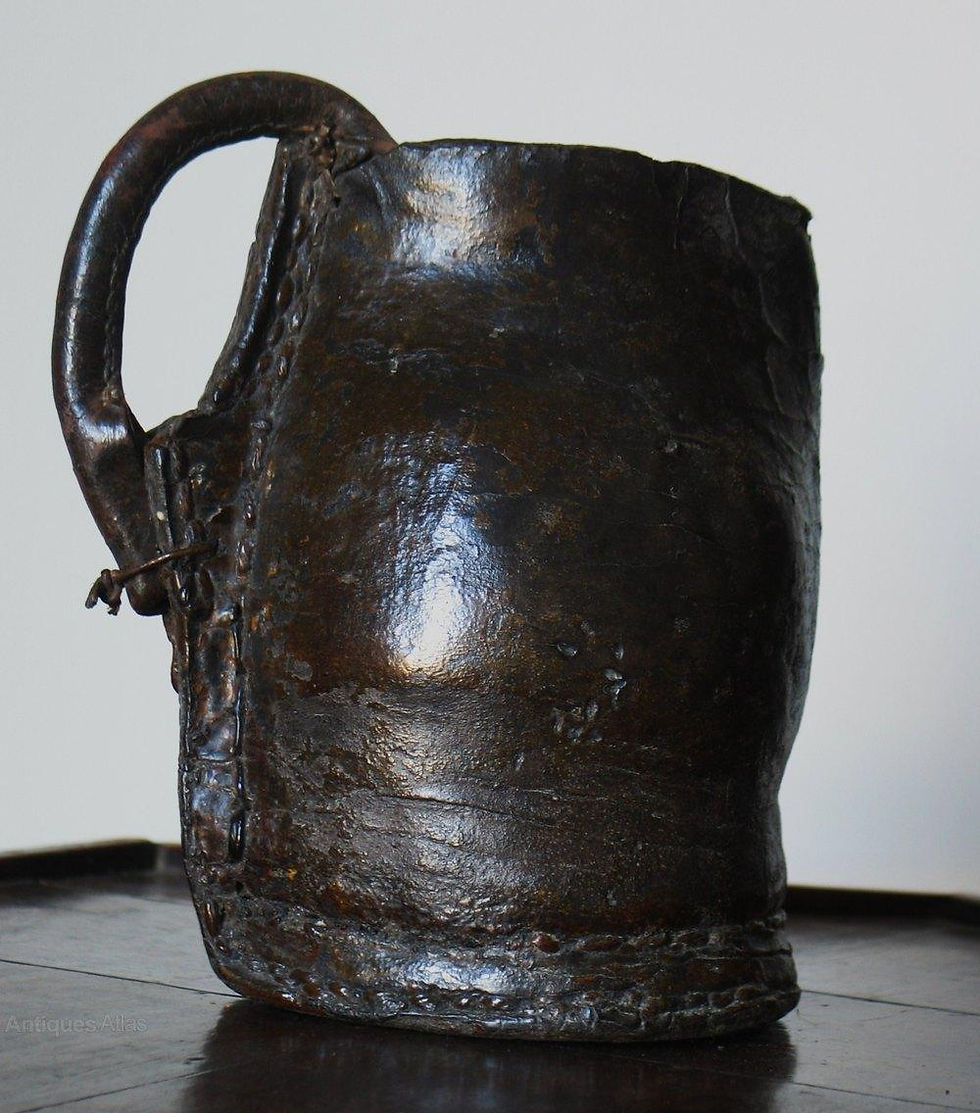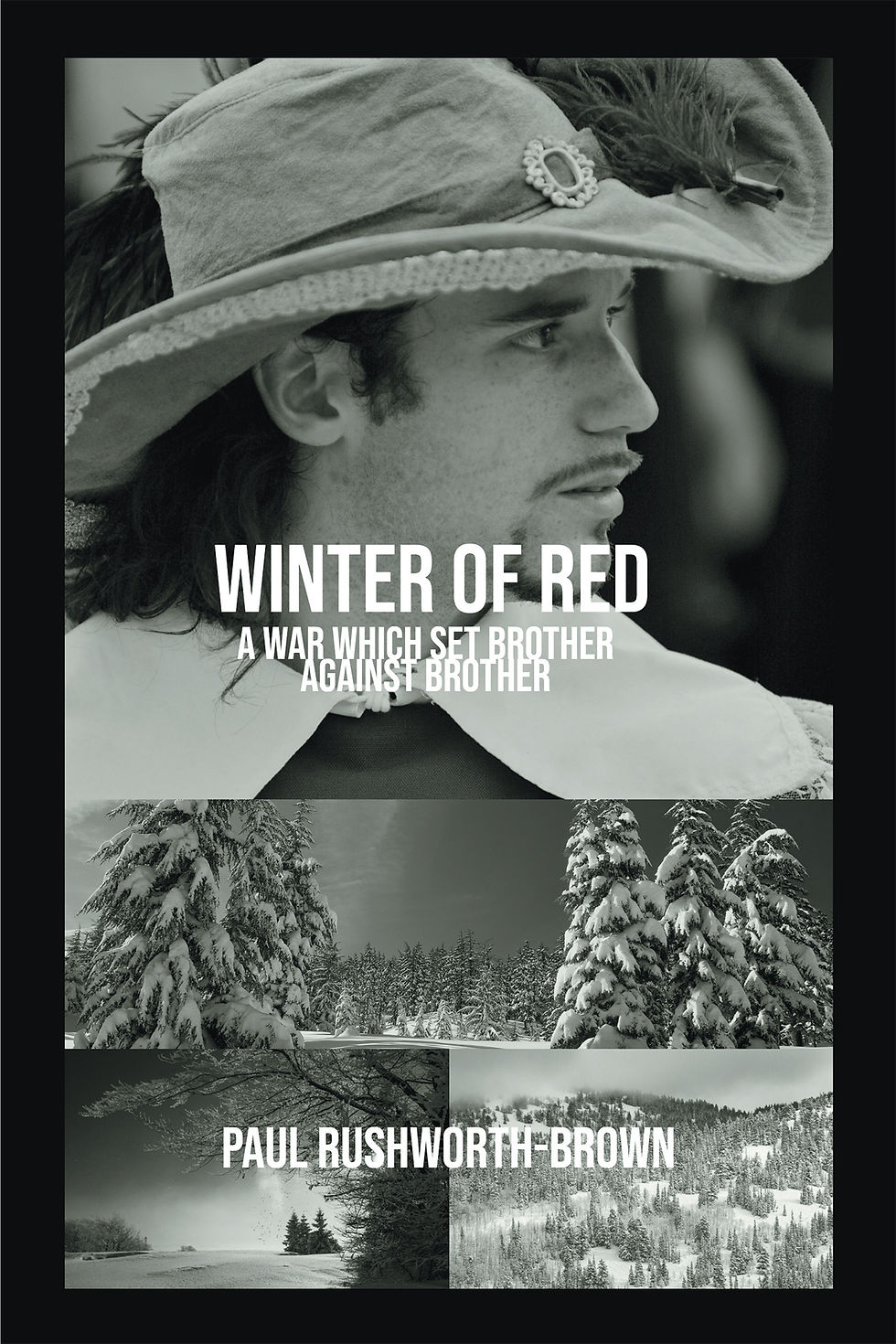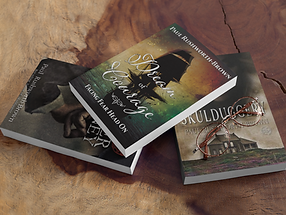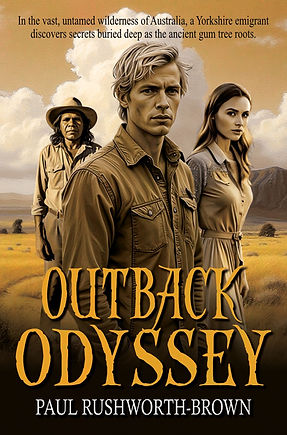Dinner with the Rushworths – Yorkshire 1590
- Paul Rushworth-Brown
- Dec 14, 2020
- 5 min read
Updated: Jun 6, 2023

If you were invited to the Rushworth cottage for dinner or 'cena' at 6:00 pm you would have been asked to sit at the hearth of the fire to warm yourself after your walk through the rain and mist from the village of Haworth. When you walked in the cottage there would be the distinct aroma of manure and urine coming from the animal enclosure at the back of the room. You would be able to hear the noises of a few sheep, a cow, some pigs and chickens and the straw on the dirt floor would be wet and muddy.
William would move a trestle to the middle of the room and place three legged stools around it. The trestle would be taken down and stored against the wall after dinner to make more room in the small cottage.

Lucy would take your brown woollen cloak and felt hat and hang it on a nail near the fire to dry. You would see everybody wash their hands in a ceramic basin and wash the dirt from their nails.
Thomas and William would direct you to the stool and sit with you near the fire smoking their long white clay pipes leaving Agnes and Lucy to prepare the meal. While the women were cutting vegetables on the table near the side wall, the men would talk to you about the coming manor court, who was in the pillory that week and the coming rain that had the potential to ruin the next harvest. Thomas would complain about the increase in taxes and tithe and the three days’ work he had to do for the lord during the week. He may mention the large trout in the beck that he was not allowed to catch and the deer in the woods that he wasn’t allowed to hunt for fear of a lashing ordered by the lord of the manor.
Lucy would have already stoked the fire and built it up with the dried peat that William had cut and collected. Thomas would knock his pipe on the side of the hearth and invite you to sit at the wooden trestle. You would have been served a wooden bowl of pottage which was a staple at the time. The pottage would have been ladled into the wooden bowl from the iron cauldron which sat in the fireplace.

When you looked in the bowl you would have seen a watery vegetable soup but as you were their guest, some salted lamb may have been added as it was a special occasion. Alternatively, you may have been treated to meat from a freshly caught squirrel that Thomas had caught during the day or sparrow chicks that William had taken from the nest in the rafters. You would be able to pick out the tiny pieces of meat and watch the others greedily slurp from their bowls.
Anything was thrown into the cauldron and boiled together and often the pottage would stay on the fire for days on end with additional ingredients being added from time to time to thicken it, so if you were lucky your meal was thicker and more substantial than usual.

Agnes would have used whatever vegetables and herbs she had taken from the croft out the back of the cottage and boiled it in some stock made from bones from the last butchering. She would probably thicken the pottage with barley or breadcrumbs if there was a guest. Lucy would have put some dark Rye and Barley heavy bread on the table and offered it to you to rip off a piece for dipping. The bread would be hard and possibly a bit stale and you would need to dip it in the pottage to soften it before chewing.

If you were lucky, she may have made some black pudding earlier in the day. This would have involved using the blood of the latest slaughtered animal and mixing it with milk, animal fat, onions, and oatmeal. It would have been dark and black and rolled into a long dry sausage shape. You would use the knife that you had in your belt to cut and eat it.

Thomas who sat at the end of the table, would offer you a leather mug or jack of ale as water from the beck was unpleasant to drink and milk did not stay fresh for long.
It was difficult to brew ale and the fermentation process would take a couple of days. The barley had to be soaked in water and then carefully germinated to create malt. After the malt was dried and ground, Agnes would add it to hot water for fermentation to take place. Fortunately, as it was so readily consumed there would be a barrel of it, but there was no chance of getting drunk as this brew was low in alcohol content.
Prior to eating, the women would have sat down, and the table would go quiet. Thomas would say grace while everybody closed their eyes and lowered their heads thanking God for the food on the table. If there was a tablecloth then you would have seen William wipe his nose on it or use the back of his hand.

The women would not start eating until you and the rest of the men reached across taken their bread and poured their ale. As everybody was so hungry from working in the fields all day eating and talking with your mouth open would be commonplace and any bits of bone would be spat on the floor. It wouldn’t take long to finish the bowl and there were no seconds, but the bread would fill you up. The men would wipe their chins with the back of their sleeve, re-light their pipes and pour more ale. One of the children would have received a whipping from the Willow stick before being sent to the loft to bed for not doing as they were told.
The women would wash the bowls in a cold bucket of water and then prepare for bed by unrolling the straw mattresses on the floor, for tomorrow was another day.

Paul Rushworth-Brown is the author of three novels:
Skulduggery- An exciting, mysterious, fictional and historically accurate adventure pulls no punches about the life and hardships of peasant farmers living on the moors of Yorkshire in 1590.
"Was excellent reading . I intended to read it over the next week but once I started I could NOT put it down . Really enjoyed it !"

Winter of Red- Come on this historic journey, which twists, turns and surprises until the very end. If you like history, adventure and intrigue with a dash of spirited love, then you will be engrossed by this tale of a peasant family unexpectedly getting caught up in the ravages of the English Civil War in 1642.
"A fictional, historical novel about a loving peasant family caught up in a 1642 shocking Civil War. Humour, romance, adventure and excitement are here to enjoy. A great story.

"Dream of Courage- Soon to be released!
The much anticipated story of the Rushworth family and their journey out of poverty.
King Charles has been executed and England becomes a Republic under the leadership of Oliver Cromwell. Highwaymen, thief-takers, pirates and broggers tell
the story in this mysterious and bone chilling historical thriller.





.png)

.png)


.png)
.png)



.png)





Comments